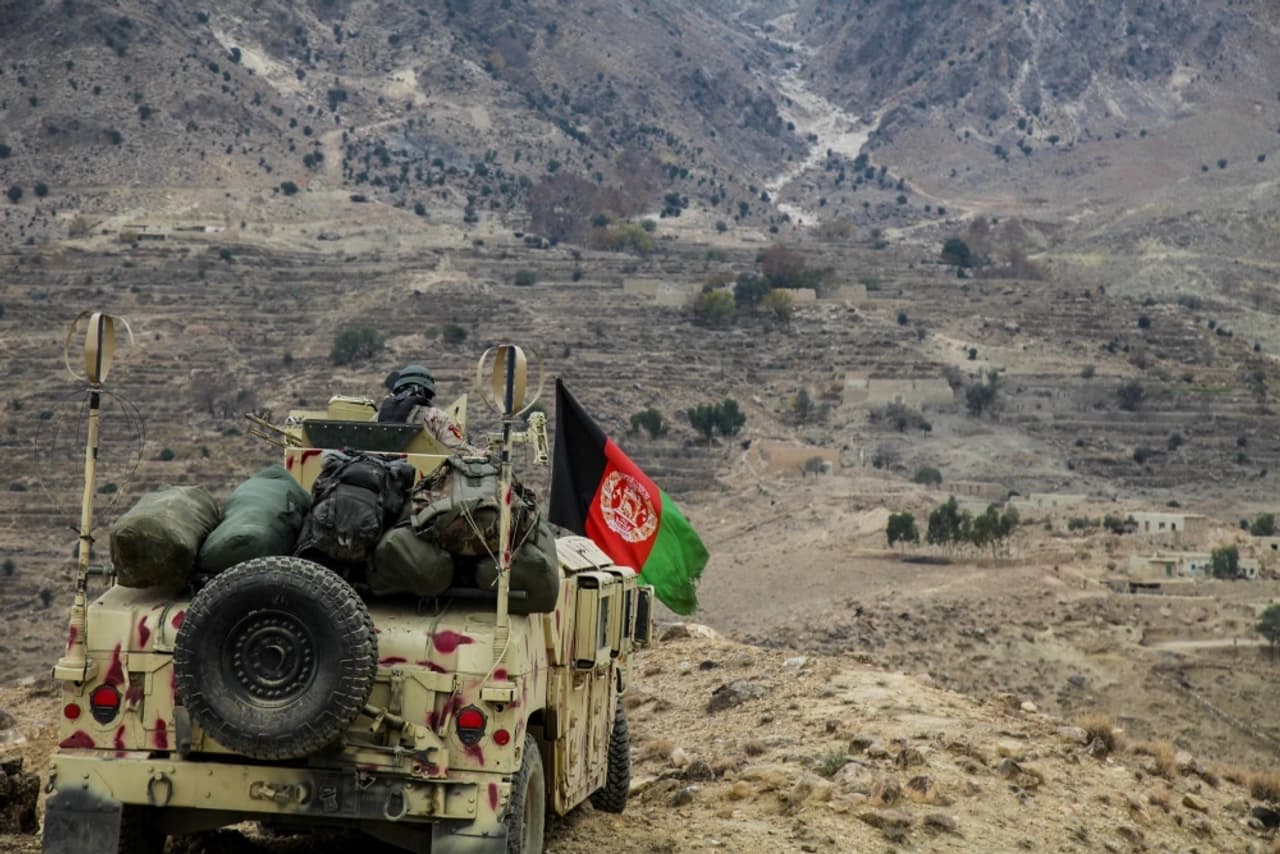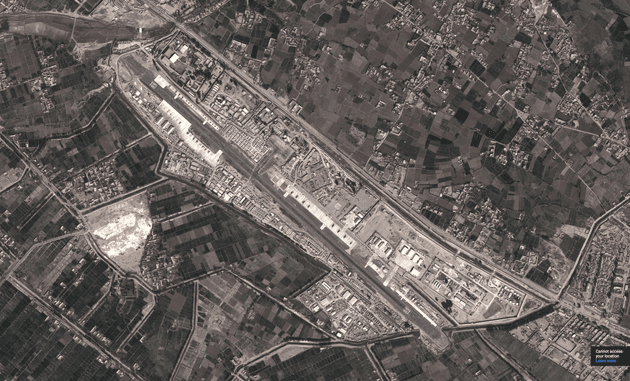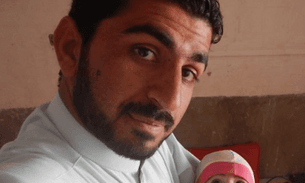
CIA-backed Afghan unit accused of atrocities is able to call in air strikes
Armoured vehicles come and go from the airport in Jalalabad, one of the biggest cities in eastern Afghanistan. Locals don't know much about who travels in them, but they do know one thing: they are to be feared.
Quartered behind the airport's razor wire is a secretive CIA-backed Afghan special forces unit that has been accused of human rights atrocities.
The CIA backs numerous forces in Afghanistan, but finding out more information about them is extremely hard, both because of the fear the militias inspire in the local population and because of the CIA's lack of transparency.
But local outrage at abuses by CIA-backed forces in Afghanistan is gradually dragging these shadowy forces into the spotlight. Last month the New York Times published a major expose on these groups and the civilian casualties attributed to them.
The New York Times documented abuses carried out by these Afghan special forces units during ground raids: in one particularly brutal incident two brothers were hooded and executed in the corner of a room which was then detonated. But even more destruction is possible if air strikes can be called in by such groups on their targets. An investigation by the Bureau has uncovered instances where this has happened.
We focused on a branch of special forces working under the Afghan intelligence agency (known as the NDS) It operates from the Jalalabad air-base in Nangarhar province and is backed by the CIA. Known by many as the “02” unit, its on-the-ground activities are supported by air strikes carried out by both US and Afghan forces, senior Afghan intelligence officials told the Bureau.
 An aerial view of Jalalabad airport, where the unit is based
Google Maps
An aerial view of Jalalabad airport, where the unit is based
Google Maps
We spoke to a man named Zahed Zahidi, who said 16 civilians were killed when the unit attacked his Nangarhar village in September last year, swiftly followed by an air strike. He says five members of his family died in the attack. Two were students, while the other three were farmers. Three others were injured, including two children.
“When my family members heard shots being fired outside, they went out to see what was going on and were hit by an air strike that killed the five of them. The airstrike also destroyed part of our house,” said Zahidi. “They destroy and bomb houses without a second thought. They riddled a tractor my family owned with bullets.”
 A father and two sons killed in the September strike
Photos supplied by family
A father and two sons killed in the September strike
Photos supplied by family
While reconstructing the exact chain of events that night is difficult, including uncovering whether the air strike was carried out by US or Afghan forces, one thing is clear: this isn’t the first time ground forces have called in air attacks that have proved deadly.
Numerous residents and relatives relaid to the Bureau an account of another deadly incident just a month later on October 23. According to them, the unit's raid killed 13 civilians, including at least four children. The Interior Ministry has claimed only Islamic State fighters were killed.
One of those caught up in the raid told the Bureau it started with an air strike. “First, they attacked us with bombs. Then they entered the living room and started to shoot around,” said Jamal Khan. “They didn't care about who they were killing. They killed my uncle and his 9-year-old son. His wife and his other child were injured.” Khan said his uncle was a guard at a government run school in Rodat, the Nangarhar district where the incident took place.
Another man told us he lost seven relatives in the same operation. “My uncles had a pharmacy in our village,” said Abdul Samad. “Nobody had any connections with insurgent groups. They were innocent people.”
According to some tribal elders and activists, last September and October more than 260 civilians were killed in the 02 unit’s search operations in Nangarhar.
A civil society activist in the province told the Bureau: “The 02 unit conducts operations with impunity and no regard for civilian lives, they destroy civilian homes that those people put so much effort into building, burn cars and use explosives and air strikes at will.”
02 is just the latest iteration of a recurring problem: as the US seeks to maintain security across Afghanistan with fewer American boots on the ground, it is backing multiple Afghan units and militias to plug the gap. Many of these units have questionable human rights records, and if given the ability to call in strikes, they are armed with potentially devastating air power. And as President Trump mulls over plans to further reduce US troop numbers, reliance on such forces may only deepen.
In an interview with the Bureau, Hayatullah Hayat who is the governor of Nangarhar, acknowledged that civilian casualties from raids by US-backed Afghan intelligence special forces were a problem, which he said his office was seeking to address by raising awareness among the civilian population of what to do during a raid.
He dismissed claims that the Nangarhar unit was killing over 100 civilians a month as an exaggeration, but accepted that roughly one in every ten raids did result in civilian casualties.
"Both international forces and the Afghan security forces are committed to saving civilian lives, but unfortunately the enemy are using civilians as a human shield, and for that reason sometimes it’s complicated and night operations by special forces or NDS (the Afghan intelligence agency) result in civilian casualties," said Hayat.
It is unclear how many of the deaths resulting from CIA-backed forces happen during the on-the-ground raids and how many are caused by accompanying air support. However the numbers stack up, giving such units the power to make air strikes happen raises serious concern for civilians.
Patricia Gossman, senior Afghanistan researcher for Human Rights Watch, told the Bureau: “Devolving such authority to Afghan special forces compounds the existing problem about whether those ordering the air strikes are adequately distinguishing between combatants and civilians, between legitimate military objectives and protected civilian property.”
“What we have seen from the Afghan Air Force is not encouraging, so one has to ask what kind of training is being done to ensure that those calling in air strikes adhere to the principles of distinction and proportionality, as required under international humanitarian law,” Gossman added.
For those caught up in the 02 unit’s destruction, there is a lack of clarity over where to turn. The UN’s mission in Afghanistan found forces like these appear to operate outside of the Afghan security forces’ chain of command, resulting in a lack of clear oversight and accountability.
Jamal Khan who lost two of his relatives in an 02 raid told the Bureau: “No one is taking responsibility so we just try to go on with our lives knowing that the unit that gets their orders from Americans killed our family members and the government cannot do anything for us.”
Main photo: Afghan commandos on mission in Nangarhar (Photo by Staff Sgt. Matthew Klene)
Our Shadow Wars project was funded by the Open Society Foundation and the Joseph Rowntree Charitable Trust. None of our funders have any influence over the Bureau’s editorial decisions or output.



